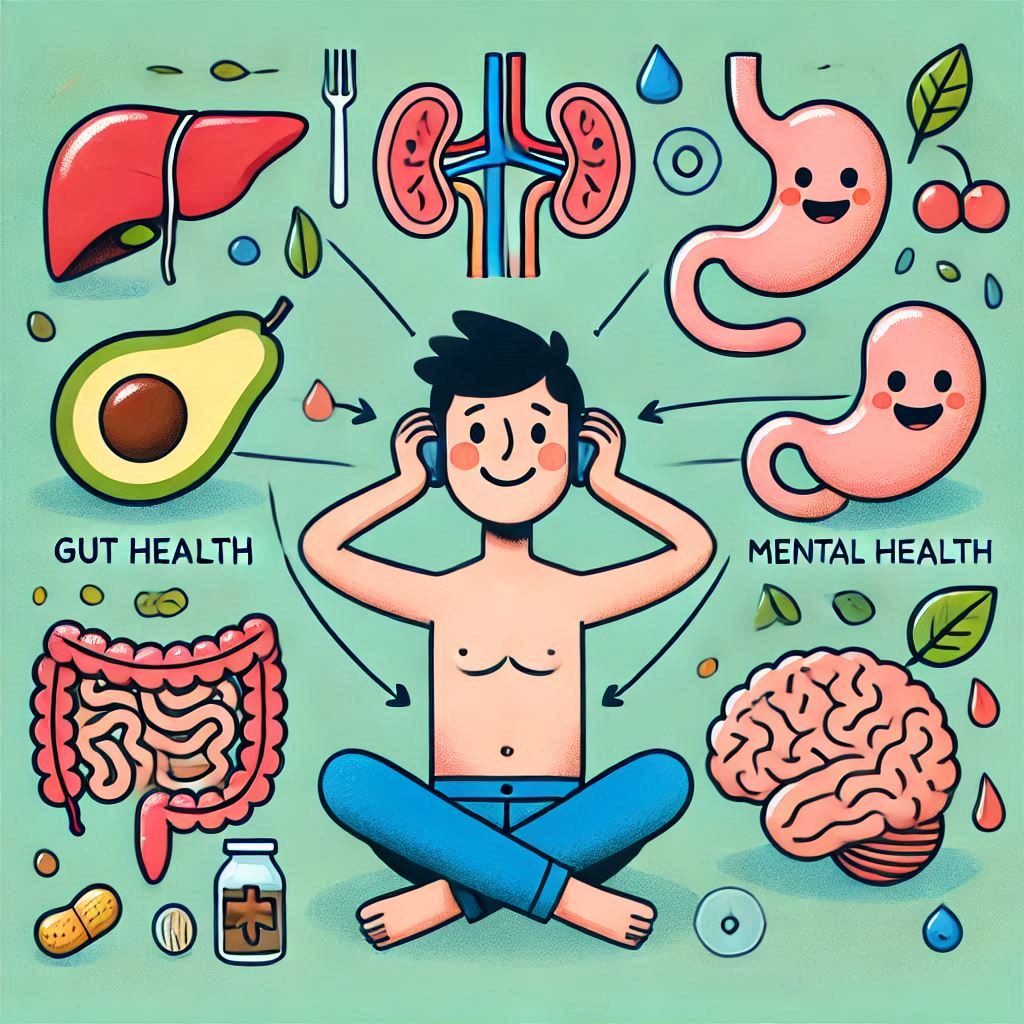“Gut Instincts: The Hidden Link Between Your Gut and Mental Health”
Introduction
The gut and the brain are closely connected, and this relationship plays a crucial role in our overall well-being. Recent research has highlighted the significant impact that gut health can have on mental health, revealing a complex interplay between the two.
The Gut-Brain Axis
The gut-brain axis is a communication system between the gut and the brain. This connection involves various pathways, including the nervous system, immune system, and endocrine system. The gut microbiota, which consists of trillions of microorganisms living in the digestive tract, plays a vital role in this communication.

How Gut Health Affects Mental Health
- Serotonin Production: The gut produces about 90% of the body’s serotonin, a neurotransmitter that regulates mood, sleep, and appetite. A healthy gut can help maintain optimal serotonin levels, promoting a positive mood and reducing anxiety and depression.
- Neurotransmitter Production: Gut bacteria produce neurotransmitters like gamma-aminobutyric acid (GABA), which helps regulate anxiety and stress. An imbalance in gut bacteria can affect the production of these neurotransmitters, leading to mental health issues.
- Gut Permeability and Inflammation: A healthy gut barrier prevents harmful substances from entering the bloodstream. When the gut becomes permeable (often referred to as “leaky gut”), it can lead to inflammation, which has been linked to various mental health disorders, including depression and anxiety.
Impact on Mental Health
Research has shown that gut health can significantly impact mental health. Here are some key findings:
- Anxiety and Depression: Studies have found that individuals with anxiety and depression often have altered gut microbiota. Probiotics and prebiotics, which promote healthy gut bacteria, have been shown to improve symptoms of anxiety and depression.
- Stress Response: The gut microbiota can influence the body’s stress response. A healthy gut can help regulate the production of stress hormones, reducing the impact of stress on mental health.
- Cognitive Function: Emerging research suggests that gut health may also play a role in cognitive function and the development of neurodegenerative diseases like Alzheimer’s.
Related Data
Here’s a table summarizing the relationship between gut health and mental health:
| Aspect of Gut Health | Impact on Mental Health |
|---|---|
| Serotonin Production | Regulates mood, sleep, and appetite |
| Neurotransmitter Production | Affects anxiety and stress levels |
| Gut Permeability | Linked to inflammation and mental health issues |
| Gut Microbiota | Influences anxiety, depression, and stress |
| Cognitive Function | May impact cognitive function and neurodegenerative diseases |
Improving Gut Health for Better Mental Health
Here are some tips to improve gut health and, in turn, support mental well-being:
- Balanced Diet: Eat a diet rich in fiber, fruits, vegetables, and fermented foods to promote healthy gut bacteria.
- Probiotics and Prebiotics: Consider taking probiotic supplements or consuming foods rich in probiotics (like yogurt and kefir) and prebiotics (like garlic and onions).
- Regular Exercise: Physical activity can positively influence gut health and support mental well-being.
- Adequate Sleep: Ensure you get enough sleep to maintain gut health and regulate mood and cognition.
- Stress Management: Practice stress-reducing techniques like meditation, yoga, and deep breathing exercises.
Conclusion
The relationship between gut health and mental health is a fascinating and rapidly evolving field of study. By understanding and nurturing this connection, we can take proactive steps to improve our overall well-being. A healthy gut can lead to a healthier mind, highlighting the importance of maintaining good gut health for mental wellness.
I hope you find this article helpful! Let me know if there’s anything else you need.